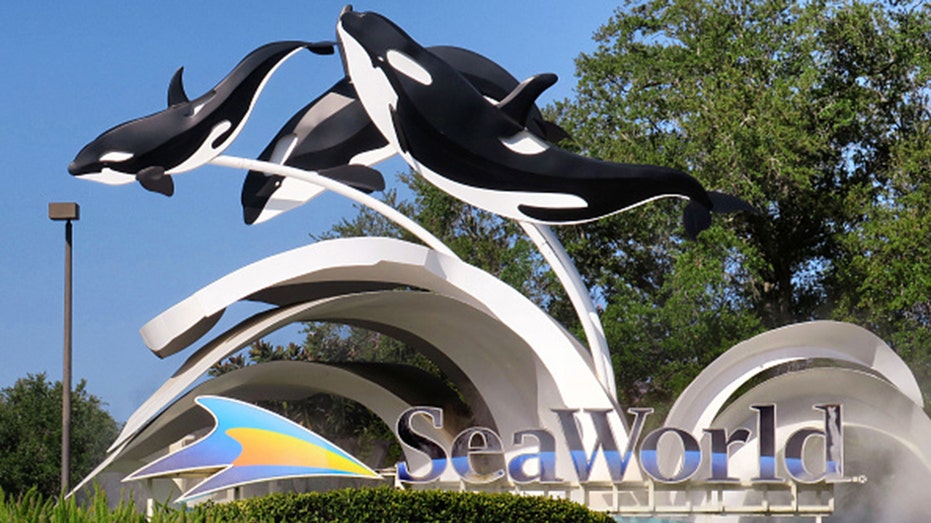SeaWorld seeking federal coronavirus help, faces backlash
SeaWorld is losing more than $25M per month from sitting idle
Get all the latest news on coronavirus and more delivered daily to your inbox. Sign up here.
One of the largest theme park operators in the United States is turning to federal taxpayers for help staying afloat amid the coronavirus pandemic even though critics accuse it of paying little in federal taxes over the past decade, according to the Orlando Sentinel.
After having its operation hobbled by the spread of the virus, SeaWorld Entertainment Inc. is seeking a loan from the federal government, made available through a Congressional initiative to help small to midsized businesses weather an economic shutdown intended to curb the spread of COVID-19.
Representatives for SeaWorld didn't immediately respond to FOX Business' request for comment.
SEAWORLD CEO RESIGNS AFTER CLASHING WITH BOARD
Since the outbreak, the company has been forced to shutter its 12 theme parks. The move not only meant furloughing 90 percent of staff, it's costing the company more than $25 million a month for the sites to sit idle, according to the report.

The entrance to SeaWorld Orlando on March 13, 2020. (Joe Burbank/Orlando Sentinel/Tribune News Service via Getty Images)
Still, financial statements show the company garnered a pre-tax profit of nearly $193 million over the past decade while paying less than $8 million in total income taxes, according to the Sentinel, which obtained SeaWorld’s financial statements.
CORONAVIRUS FORCES SEAWORLD TO FURLOUGH OVER 90% OF EMPLOYEES
That's reportedly due in part to the multi-billion private equity buyout the company initiated 10 years ago with the Blackstone Group. In 2009, Blackstone purchased the theme park from Anheuser-Busch InBev in a $2.7 billion deal, the New York Times reported.
The deal was arranged so the private equity firm would take ownership of the company's physical assets such as buildings, aquariums and roller coasters instead of the company itself, a structure that allowed SeaWorld to claim big tax deductions by writing down the value of those assets, a process known as depreciation, according to the Sentinel.
While the physical assets may lose value over time, special tax breaks allow companies to write them down much more rapidly for tax purposes, creating only-on-paper losses.
When the company went public a few years later, the outlet reported that SeaWorld quickly became a hot commodity for investors since it was able to avoid income taxes while making a hefty profit.
"We won't be a taxpayer for several years to come," then-SeaWorld CEO Jim Atchison told investors in 2013, according to the outlet. "That's a great advantage for us."
SeaWorld declined to comment to the Sentinel about whether the company has paid federal income tax over the past 10 years. Officials did point out, however, that the business spent hundreds of millions of dollars on taxes overall, including levies on payroll, property and sales, while supporting thousands of jobs across its supply chain and 12 theme parks.
That didn't satisfy local labor leaders, angered by Sea World's furloughs.
“It's pretty disgusting that a company would pay virtually nothing in income tax, make millions of dollars in profit, and then ask for money back,” Jeremy Haicken, the president of Unite Here! Local 737, told the Sentinel.
The union, which represents roughly 19,000 food-and-beverage workers and housekeepers in Orlando, is lobbying the Federal Reserve and U.S. Treasury Department to reject any loan application submitted by SeaWorld, the Sentinel reported.
CLICK HERE TO READ MORE ON FOX BUSINESS
SeaWorld, however, stood by its application.
“This is an entirely unprecedented crisis that is profoundly impacting hospitality, leisure and travel businesses. Substantially all of our revenue is generated from our theme parks," SeaWorld told the outlet. "As an organization that employs thousands of people, cares for thousands of animals, welcomes millions of guests and contributes in meaningful ways to the communities where we operate, it would be irresponsible for us not to explore programs that are specifically designed to support companies like ours.”
Still, much smaller businesses are struggling to get loans from the government's multi-trillion-dollar coronavirus relief package.
The Paycheck Protection Program's initial $349 billion was exhausted in less than two weeks after more than 1.7 million loans were approved. Although the program received another $310 billion to support businesses, many fear the new round of fresh funding will quickly evaporate.
The Associated Press contributed to this report.




















